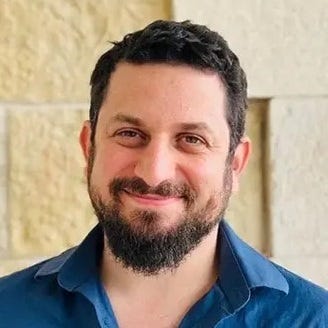What the Hollywood Writers Strike Resolution Means for CybersecurityWhat the Hollywood Writers Strike Resolution Means for Cybersecurity
The writers' strike shows that balancing artificial intelligence and human ingenuity is the best possible outcome for creative as well as cybersecurity professionals.

In the wake of the Writers Guild of America's (WGA) momentous five-month strike, one thing is abundantly clear: The creative industry stands at a crossroads where technology and human creativity must learn to coexist harmoniously. The strike, one of Hollywood's longest labor disputes, has finally drawn to a close, and its implications extend far beyond the glitzy confines of Tinseltown. At its core, this dispute revolved around the role of artificial intelligence (AI) in creative processes, a topic that demands thoughtful consideration as we navigate the uncharted territory of AI's vast potential in many sectors, including cybersecurity.
The crux of the matter lay in writers' concerns that studios could leverage AI to diminish writers' role in the creative process, and thus, their earnings and artistic recognition. The approved agreement, which bans the independent or exclusive use of AI for writing, rewriting, or crafting source material for scripts, marks a significant victory for writers' rights. It ensures that writers will be duly credited for their creative contributions, irrespective of whether they choose to leverage AI for the creative process. This provision sets a vital precedent for industries worldwide, reinforcing the principle that AI should be a tool that enhances, rather than replaces, human creativity.
Putting AI's Power to Work, From Art to Cybersecurity
It is important to acknowledge the undeniable power of AI across a wide variety of domains, especially as it relates to its unparalleled ability to automate routine tasks and increase efficiency. While the WGA and Screen Actors Guild — American Federation of Television and Radio Artists (SAG-AFTRA) strikes are among the first formal, organized forms of backlash against AI's potential for disruption, the possibility for rapid and transformational change is by no means limited to Hollywood.
Take, for instance, the realm of cybersecurity — and more specifically, phishing detection and remediation — where AI algorithms are already being used to swiftly and effectively identify malicious activities and intercept potential threats. These AI-driven systems analyze vast datasets and identify patterns that are often too complex for human operators to process alone. Armed with this information, the AI-driven systems are then able to reliably and efficiently prevent attacks that may otherwise have slipped through traditional defenses unnoticed.
This technology has undoubtedly elevated our ability to combat cyber threats efficiently. However, just as the WGA argued in its collective bargaining efforts, we must also acknowledge AI's inherent limitations. While AI can excel in pattern recognition and automation of repetitive tasks, it lacks the nuanced understanding, intuition, and emotional intelligence that human beings possess. AI's greatest value in the fight against cybercrime will be its ability to automate away routine tasks, making existing security professionals more efficient, and assist humans in the fight against cybercrime. It will also help make those who aren't security professionals become assets, rather than liabilities.
However, it lacks the higher-level executive capabilities required to judge things like context, intent, and significance. And, as a result, AI tools can be prone to false positives and negatives, which can have serious consequences, particularly in fields where human lives, creativity, or reputation are at stake. This is precisely why human backup is essential whenever AI is in use.
Striking a Balance Between AI and Human Ingenuity
The Hollywood writers' strike exemplifies the delicate balance that must be struck between AI and human creativity. The new contract wisely allows writers to use AI tools, provided they are agreeable and informed, without forcing them into AI's embrace. It mandates transparency, ensuring that writers are aware when AI-generated materials are used in their projects. This approach respects the capabilities of AI while safeguarding the irreplaceable essence of human creativity and judgment.
In essence, AI should be viewed as a powerful ally, augmenting our abilities and amplifying our potential. But it should never be allowed to undermine the spirit of human creativity and the irreplaceable role it plays in our cultural, artistic, and business landscapes. The Hollywood Writers Guild has set an important precedent that other unions and industries should heed, securing the rights of workers and preventing them from being supplanted by AI.
The future undoubtedly belongs, in part, to AI, but it also belongs to those who recognize the irreplaceable value of human ingenuity. The most powerful stories, the most profound works of art, and the most impactful technological innovations will always emerge from the singular minds of human beings. While AI represents a very powerful, very exciting addition to humanity's ever-expanding arsenal of creative enablers, it should never be confused for a replacement for the primary source, human ingenuity. With this understanding, we can create a brighter future for all.
Artificial intelligence has the awesome potential for augmenting human creativity and decision making, but never replacing it. Its greatest potential lies in empowering humanity and democratizing our ability to express ourselves in new and unimagined ways. The sooner we, as a society, embrace this role for AI, the sooner we can get over our fears and begin reaping the immense opportunities it has to offer.
About the Author
You May Also Like



_Nils_Ackermann_Alamy_Stock_Vector_.jpg?width=700&auto=webp&quality=80&disable=upscale)
